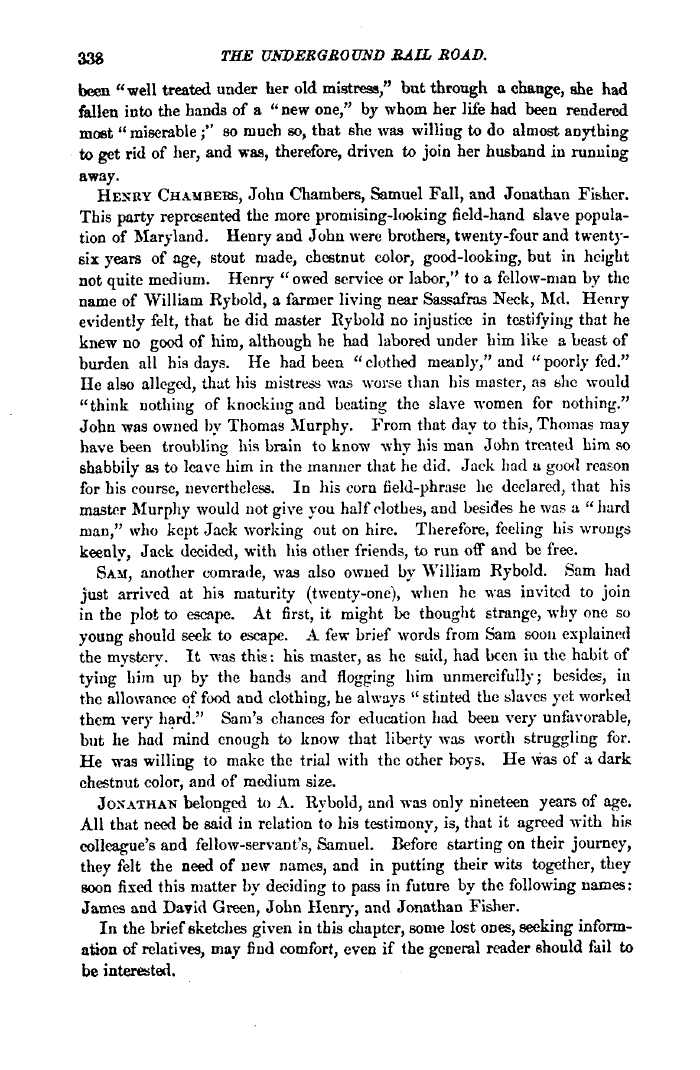 |
||||
 |
||||
| 338 THE UNQERG&QUXD RAIL ROAD. been "well treated under her old mistress," but through a change, she had fallen into the hands of a " new one," by whom her life had been rendered most " miserable ;" so much so, that she was willing to do almost anything to get rid of her, and was, therefore, driven to join her husband in runuing away. HEXRY CHAMBERS, John Chambers, Samuel Fall, and Jonathan Fisher. This party represented the more promising-looking field-hand slave population of Maryland. Henry and John were brothers, twenty-four and twenty-six years of age, stout made, chestnut color, good-looking, but in height not quite medium. Henry "owed service or labor," to a fellow-man by the name of William Rybold, a farmer living near Sassafras Neck, Mcl. Henry evidently felt, that he did master Rybold no injustice in testifying that he knew no good of him, although he had labored under bim like a beast of burden all his days. He had been "clothed meanly," and "poorly fed." He also alleged, that his mistress was worse than his master, as bhc would "think Dotlung of knocking and beating the slave women for nothing." John was owned by Thomas Murphy. From that day to this, Thomas may have been troubling his brain to know \vhy his man John treated Lira so shabbily as to leave him in the manner that he did. Jack had. a gccxl reason for his course, nevertheless. In his corn field-phrase he declared, that his master Murphy would not give you half clothes, and besides he was a "hard man," who kept Jack working out on hire. Therefore, feeling his wrongs keenly, Jack decided, with his other friends, to run off and be free. SAM, another comrade, was also owned by William Rybold. Sam had just arrived at his maturity (twenty-one), when he was invited to join in the plot to escape. At first, it might bo thought strange, why one so young should seek to escape. A few brief words from Sam soon explained the mystery. It was this: his master, as he suid, had been in the habit of tying him up by the bands and flogging him unmercifully; besides, in the allowance of food and clothing, be always " stinted the slaves yet worked them very hard." Sam's chances for education had beeu very unfavorable, but he had mind enough to know that liberty was worth struggling for. He wa9 willing to make the trial with the other boys. He was of a dark chestnut color, and of medium size. JONATHAN belonged to A. llybold, and was only nineteen years of age. All that need be said in relation to his testimony, is, that it agreed with hip colleague's and fellow-servant's, Samuel. Before starting on their journey, they felt the need of new names, and in putting their wits together, they soon fixed this matter by deciding to pass in future by the following names: James and David Green, John Henry, and Jonathan Fisher. In the brief sketches given in this chapter, some lost ones, seeking information of relatives, may find comfort, even if the general reader should fail to be interested. |